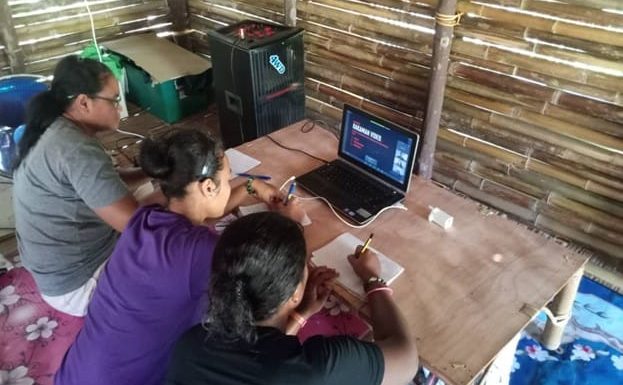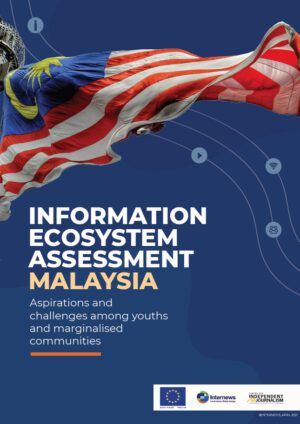Malaysia’s first Information Ecosystem Assessment identifies information needs, gaps, dynamics, and impact among youths and marginalised communities
Internews, in collaboration with the Centre for Independent Journalism (CIJ) has published the country’s first Information Ecosystem Assessment (IEA) report to capture all dimensions of the relationship between information consumers and information supply. The study is intended to reveal “deeply local information” which is then used to seek a human-centered understanding of how people and communities find, share, value, trust and produce information in their own local contexts.
From August until October 2020, local resource persons and community researchers conducted the IEA in three states (Sabah, Sarawak, Kelantan, and nationwide for the youth assessment). The IEA involved 623 participants, in which 71% are youths (aged 15 to 30 years) and 65% are women. The assessment also involved 17 local community researchers and four lead resource persons from universities and local organizations.
The assessment sought to identify the information needs, gaps, dynamics, and impact for our target beneficiaries: youths and rural/indigenous communities with emphasis on women and their young members. These segments of the population are most likely to be disadvantaged as lack of infrastructure and facilities result in communication roadblocks. The respective target group’s Information Ecosystem was assessed through these dimensions:
- Information needs
- Information Landscape
- Production and Movement
- Dynamic of Access
- Information Use
- Impact of Information
- Social Trust
- Influencers
Due to Covid-19, the methods of data collection varied to adapt to each community and group’s circumstances and requests. The IEA results are based on online surveys, and physical and virtual focus group discussions (FGD). Furthermore, mapping and key informant interviews were carried out with community leaders, youth representatives and other stakeholders which provided insight into the experiences and contextual information that helped triangulate respondents’ attitudes and perspectives on information flow, production, and needs.
The overarching themes identified from the National IEA findings:
- Lack of basic infrastructure such as electricity cuts and poor/non-existent internet coverage, is a major barrier to accessing information.
- Pusat Internet 1Malaysia is highly in demand in rural communities.
- TV is the most trusted source of information across all locations and age groups despite digital media growth.
- Locally relevant news on health and community/land rights issues are the most needed information.
- High distrust in political news/information and politicians
- Fake news is a major problem across all media and communication platforms.
- Influencers such as politicians, religious leaders and village chiefs affect the effectiveness in providing information to the public.
- Self-determination and empowerment of communities can be achieved by using hyper-local news outlets/mediums
Based on the IEA findings, Internews hopes to collaborate with partners to work towards the programmatic and policy recommendations identified in the report which address both the supply and demand side of the Information Ecosystem in Malaysia.

